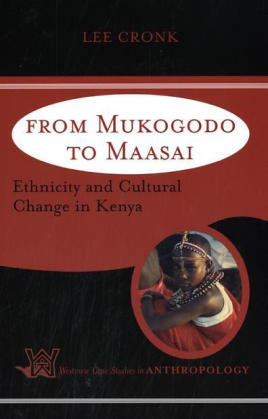
From Mukogodo To Maasai
Ethnicity And Cultural Change In Kenya
Seiten
2004
Westview Press Inc (Verlag)
978-0-8133-4094-4 (ISBN)
Westview Press Inc (Verlag)
978-0-8133-4094-4 (ISBN)
This book focuses on the strategic manipulation of ethnic identity by the Mukogodo of Kenya. It is about how Mukogodo people changed their way of life to a radically different one, that is their change as Maasai people, giving them a new way of living, a new language, and a new set of beliefs.
Can one change one's ethnicity? Can an entire ethnic group change its ethnicity? This book focuses on the strategic manipulation of ethnic identity by the Mukogodo of Kenya. Until the 1920s and 1930s, the Mukogodo were Cushitic-speaking foragers (hunters, gatherers, and beekeepers). However, changes brought on by British colonial policies led them to move away from life as independent foragers and into the orbit of the high-status Maasai, whom they began to emulate. Today, the Mukogodo form the bottom rung of a regional socioeconomic ladder of Maa-speaking pastoralists. An interesting by-product of this sudden ethnic change has been to give Mukogodo women, who tend to marry up the ladder, better marital and reproductive prospects than Mukogodo men. Mukogodo parents have responded with an unusual pattern of favouring daughters over sons, though they emulate the Maasai by verbally expressing a preference for sons.
Can one change one's ethnicity? Can an entire ethnic group change its ethnicity? This book focuses on the strategic manipulation of ethnic identity by the Mukogodo of Kenya. Until the 1920s and 1930s, the Mukogodo were Cushitic-speaking foragers (hunters, gatherers, and beekeepers). However, changes brought on by British colonial policies led them to move away from life as independent foragers and into the orbit of the high-status Maasai, whom they began to emulate. Today, the Mukogodo form the bottom rung of a regional socioeconomic ladder of Maa-speaking pastoralists. An interesting by-product of this sudden ethnic change has been to give Mukogodo women, who tend to marry up the ladder, better marital and reproductive prospects than Mukogodo men. Mukogodo parents have responded with an unusual pattern of favouring daughters over sons, though they emulate the Maasai by verbally expressing a preference for sons.
Lee Cronk is associate professor of anthropology at Rutgers University. He is the author of That Complex Whole (Westview Press, 1999).
Series Editor Preface -- Preface -- Koisa’s People -- “People Who Live in Rocks” -- From Mukogodo to Maasai -- Poverty as Routine -- Boys and Girls, Words and Deeds -- Are They Maasai Yet? -- Postscript: What You Can Do
| Erscheint lt. Verlag | 6.8.2004 |
|---|---|
| Reihe/Serie | Westview Case Studies in Anthropology |
| Sprache | englisch |
| Maße | 227 x 152 mm |
| Gewicht | 264 g |
| Themenwelt | Sozialwissenschaften ► Ethnologie ► Völkerkunde (Naturvölker) |
| Sozialwissenschaften ► Soziologie | |
| ISBN-10 | 0-8133-4094-2 / 0813340942 |
| ISBN-13 | 978-0-8133-4094-4 / 9780813340944 |
| Zustand | Neuware |
| Haben Sie eine Frage zum Produkt? |
Mehr entdecken
aus dem Bereich
aus dem Bereich
Schweden : Ambiguitäten verhandeln - Tolerieren als soziale und …
Buch | Softcover (2023)
Brill Schöningh (Verlag)
CHF 69,85
Buch | Softcover (2023)
transcript (Verlag)
CHF 75,60


